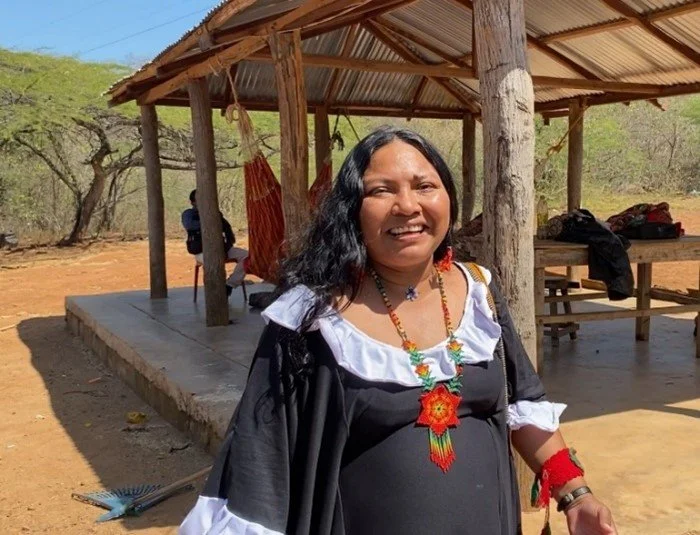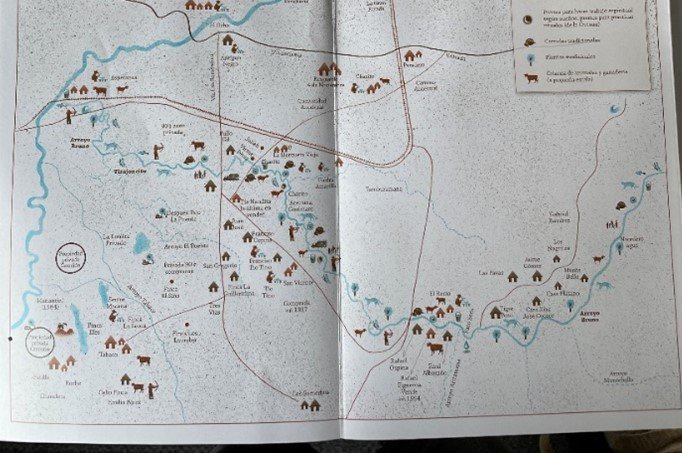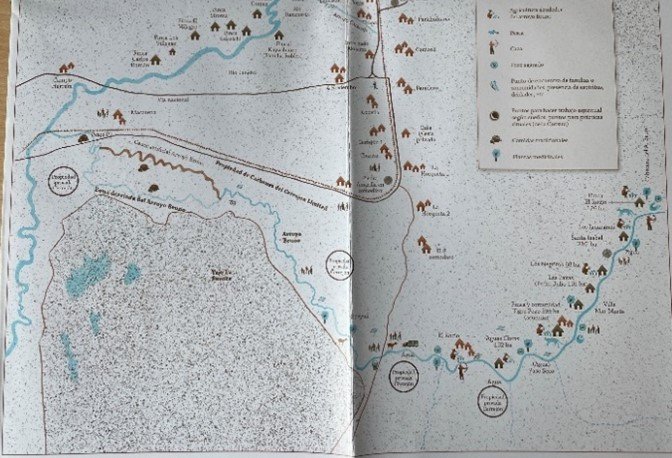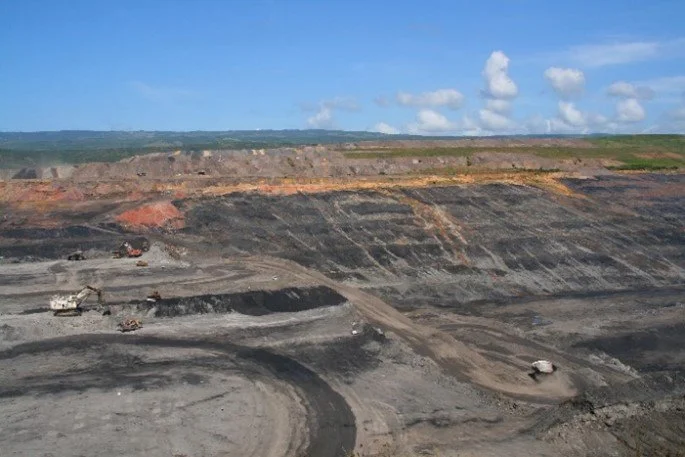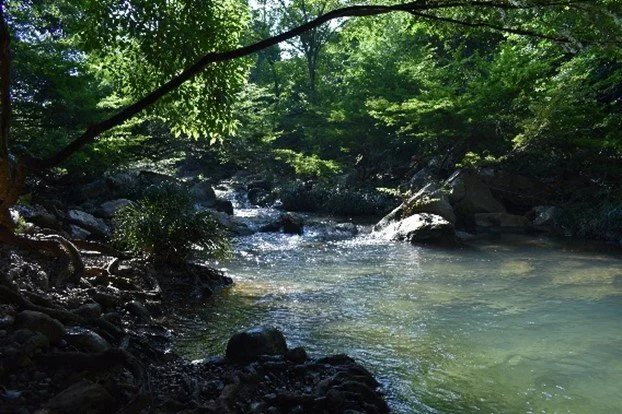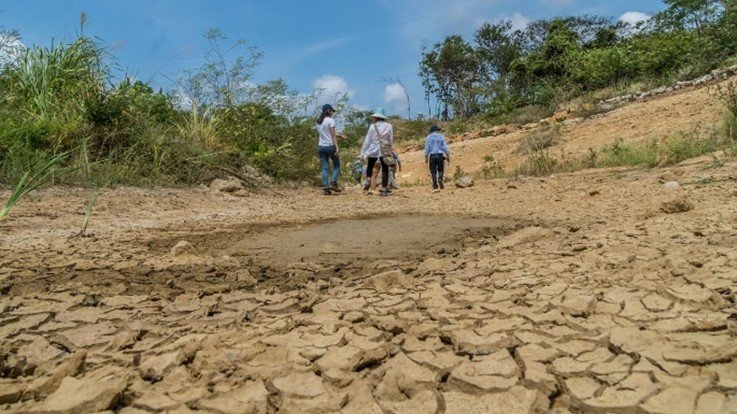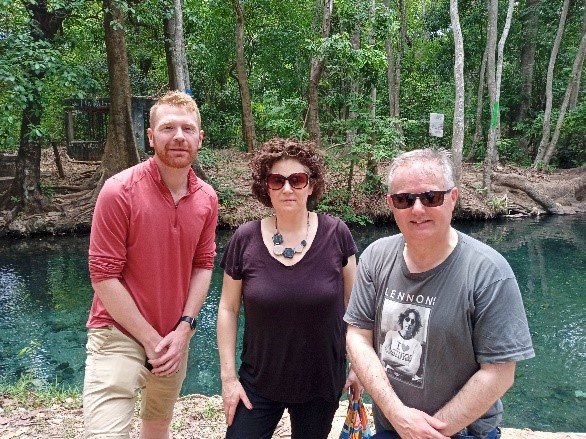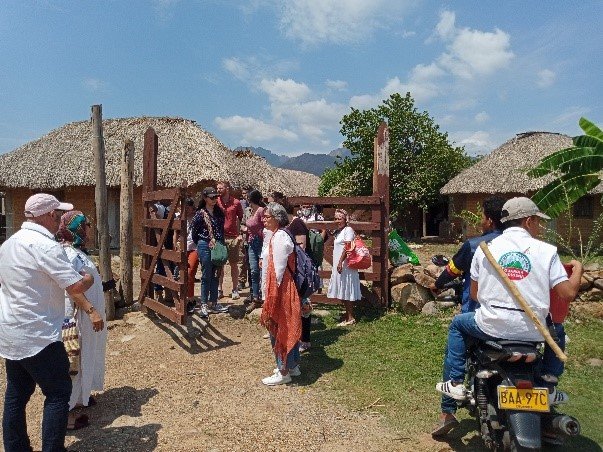The women defending life, land and water in Colombia
A blog post by CAFOD, an international development charity and the official aid agency of the Catholic Church in England and Wales.
“As the owners of our territory, we are being trampled on by that company. We don't have water because the mine is taking possession and controlling all that water.”
Mariluz Uriana is a human rights defender in La Guajira, Colombia, defending her community against the devastating impacts of the huge Cerrejon mine. The mine is located in a richly biodiverse region, on land where Wayuu indigenous, Afro-descendant and other small scale farming communities live.
Since the mine was created there has been irrecoverable damage to the environment, communities’ livelihoods and their health. More than 20 communities have been forcibly displaced for mining activities. More than 17 river streams have been either redirected or polluted.
Left: 1990-2000. Right: 2000-2010
Source: CINEP/PPP (2022): Enramar la vida. Voces de afroguajiros y wayuus. Chapter: Pujutu
shuchiku luwopuu youluna/ Liberen el arroyo Bruno, p141-171
The Wayúu people and especially women have a deep connection to their land and water sources: land and water are an extension of their very life. Now, women have lost the places where they met and performed their traditional cultural and spiritual practices.
The mine has been operated by BHP, Glencore and Anglo American, companies listed on the London Stock Exchange (until Glencore recently took full ownership). These companies have not taken serious action to prevent or mitigate the harm that they have caused and contributed to.
The Wayúu women now face another setback: in April this year, a working group commissioned by the Colombian government endorsed the continued diversion of the Arroyo Bruno (Bruno Stream), one of the communities’ most important water sources, so that coal beneath its natural channel can be extracted. As well as being a driver of climate change, coal mining in the area has already diverted other streams, leading to their demise and impacting hundreds of neighbouring communities.
No communities were consulted in this decision, despite a 2017 Colombian court ruling that the waters of the Bruno Stream provisionally return to its natural course, that communities’ participation in decision-making must be guaranteed, and that the impacts on the environment, climate change and the Wayuu communities must be evaluated.
Left: the original stream. Right: the stream now.
UK and Irish Delegation of members of the UK Parliament and the Irish Dáil, Brendan O’Hara MP, Claire Hanna MP and Gary Gannon TD, travelled to Colombia in April to meet with the company and communities. Since returning, they have expressed their deep concerns for the communities impacted by the mine.
Over the years, there have been calls from several prominent UN human rights experts for the mine’s operations to be suspended - all to no avail. The UN Special Rapporteur on Human Rights and the Environment says the case is ‘one of the most disturbing situations’ he had encountered during his time in the role.
Communities believe the mine must be closed responsibly by the company, with remedy for those affected and full environmental restoration. “No more impunity. As Wayuu women defenders and leaders we want to be respected, we want our territory and environment to be respected and safe. We insist that European countries regulate the extractivist companies that operate in the Guajira, like Cerrejón,” says Mariluz.
The UK has shown leadership on climate change and tackling deforestation in the supply chains of UK companies. UK charity CAFOD, alongside a coalition of UK civil society organisations, is calling for the UK to extend its ambition and bring in new legislation to hold companies in all sectors and industries accountable for their impacts on human rights and the environment – no matter where in the world they operate.
If you would like to know more about the campaign, please contact labraham@cafod.org.uk

